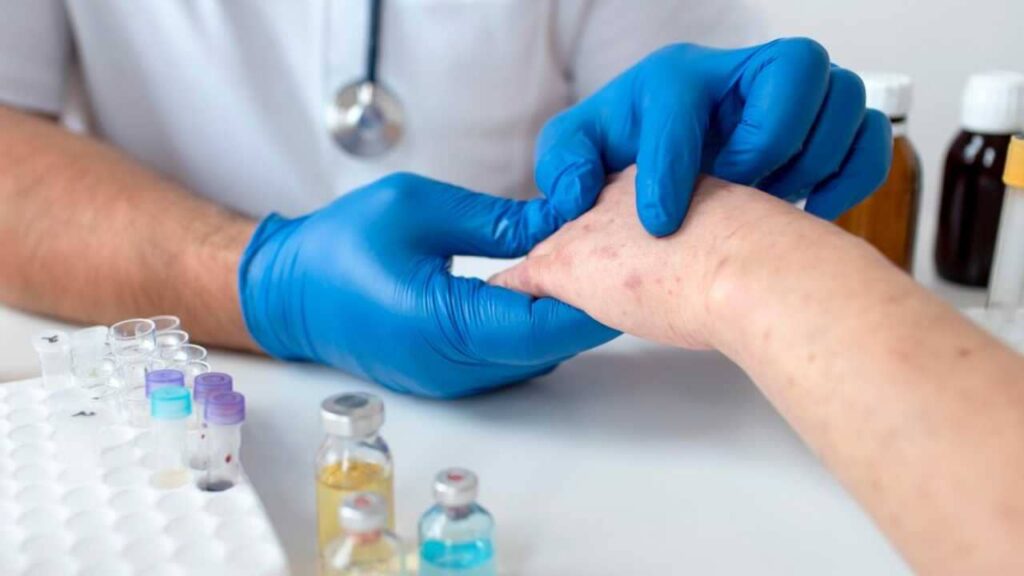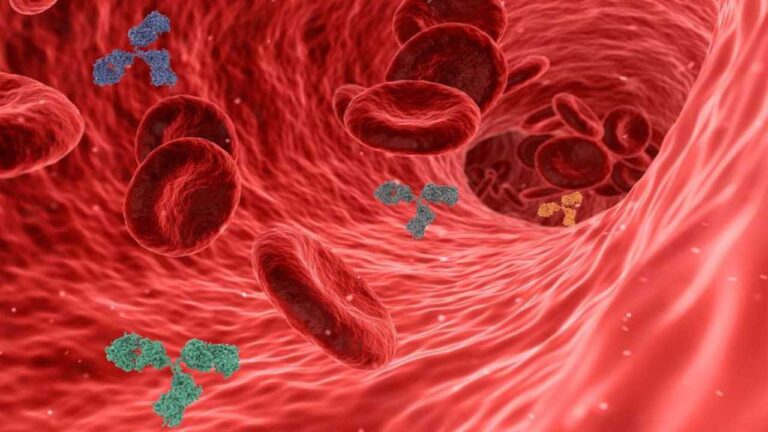The transmission of herpes often occurs inadvertently, involving direct contact in everyday situations. During active phases, sores act as vehicles for this virus, spreading through affectionate gestures. Even without clear intent, the transfer of the infectious agent underscores the importance of awareness about sexual health.

Adopting preventive measures becomes crucial to preserve emotional and physical health, emphasizing the need for open and empathetic dialogue. Understanding that herpes not only manifests physically but also carries emotional aspects promotes healthy relationships based on information, respect, and mutual care.
About Herpes Simplex
Herpes is an infection caused by two viruses from the Herpesviridae family: herpes simplex virus type 1 (HSV-1) and herpes simplex virus type 2 (HSV-2). These viruses can infect the skin, mucous membranes, and the central nervous system.
HSV-1 is most commonly associated with oral herpes, but it can also cause genital herpes. HSV-2 is most commonly associated with genital herpes, but it can also cause oral herpes. Herpes is a sexually transmitted infection (STI), but it can also be transmitted in other ways, such as through contact with shared objects or infected lesions.
How is Herpes Sexually Transmitted?
Herpes is transmitted through direct contact with infected skin or mucous membrane lesions. Herpes lesions can be blisters, ulcers, or sores. Herpes can be transmitted during vaginal, anal, or oral sex.
The risk of transmission is higher during a herpes outbreak when there are visible lesions. However, herpes can also be transmitted even in the absence of lesions. To reduce the risk of sexually transmitting herpes, it is important to use condoms during all sexual activities.
How is Herpes Transmitted through Contact with Shared Objects?
Herpes can also be transmitted through contact with shared objects such as towels, utensils, cups, and sex toys. The risk of transmission is low, but it is possible for the virus to be transferred from an infected person to another through contact with these objects.
To reduce the risk of herpes transmission through contact with shared objects, it is important to wash hands thoroughly after contact with these objects.
How is Herpes Transmitted from Mother to Child?
Herpes can be transmitted from mother to child during childbirth. The virus can be transmitted from the mother to the baby through the vaginal canal, cervix, or placenta. The risk of transmission is higher if the mother has a genital herpes outbreak during childbirth.
However, herpes can also be transmitted even in the absence of lesions. To reduce the risk of mother-to-child transmission of herpes, it is important for the mother to be tested for herpes before childbirth. If the mother is infected, the doctor may recommend a cesarean section to reduce the risk of transmission.

Herpes Symptoms
Symptoms of herpes vary depending on the type of herpes and the location of the infection.
Cold Sores (Oral Herpes)
Symptoms of oral herpes typically include:
- Sensitivity, tingling, or pain in the affected area
- Blisters that break open and form ulcers
- Burning or itching in the affected area
- Yellowish or whitish discharge
Genital Herpes
Symptoms of genital herpes typically include:
- Sensitivity, tingling, or pain in the affected area
- Blisters that break open and form ulcers
- Burning or itching in the affected area
- Yellowish or whitish discharge
- Pain during urination
- Fever
Herpes Diagnosis
The diagnosis of herpes is usually based on symptoms and physical examination. The doctor may also order laboratory tests to confirm the diagnosis.
Herpes Treatment
There is no cure for herpes, but medications can help control symptoms and reduce the frequency of outbreaks. Additionally, the doctor may recommend supplements such as vitamins and minerals to strengthen the immune system, reducing the frequency and severity of outbreaks.
Herpes medications are divided into two categories:
Antiviral medications
These medications help prevent the virus from spreading and multiplying.
Immunomodulator medications
These medications help the immune system fight the virus.
Herpes Prevention
The best way to prevent herpes is to avoid contact with the virus. To achieve this, it is important to:
- Use condoms during all sexual activities
- Wash hands thoroughly after contact with shared objects
- If you are pregnant and have herpes, talk to your doctor about childbirth




